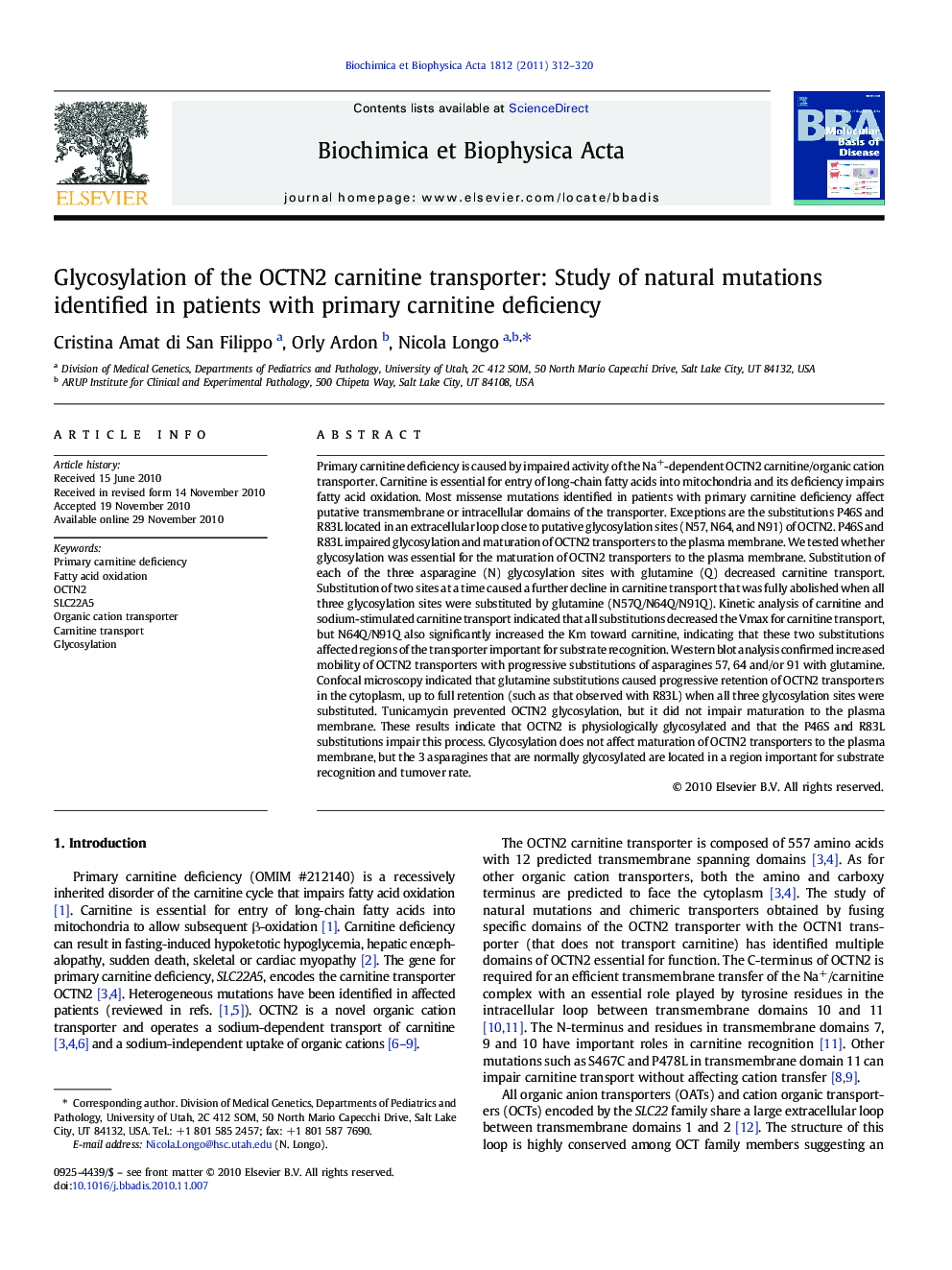| کد مقاله | کد نشریه | سال انتشار | مقاله انگلیسی | نسخه تمام متن |
|---|---|---|---|---|
| 1905215 | 1534698 | 2011 | 9 صفحه PDF | دانلود رایگان |

Primary carnitine deficiency is caused by impaired activity of the Na+-dependent OCTN2 carnitine/organic cation transporter. Carnitine is essential for entry of long-chain fatty acids into mitochondria and its deficiency impairs fatty acid oxidation. Most missense mutations identified in patients with primary carnitine deficiency affect putative transmembrane or intracellular domains of the transporter. Exceptions are the substitutions P46S and R83L located in an extracellular loop close to putative glycosylation sites (N57, N64, and N91) of OCTN2. P46S and R83L impaired glycosylation and maturation of OCTN2 transporters to the plasma membrane. We tested whether glycosylation was essential for the maturation of OCTN2 transporters to the plasma membrane. Substitution of each of the three asparagine (N) glycosylation sites with glutamine (Q) decreased carnitine transport. Substitution of two sites at a time caused a further decline in carnitine transport that was fully abolished when all three glycosylation sites were substituted by glutamine (N57Q/N64Q/N91Q). Kinetic analysis of carnitine and sodium-stimulated carnitine transport indicated that all substitutions decreased the Vmax for carnitine transport, but N64Q/N91Q also significantly increased the Km toward carnitine, indicating that these two substitutions affected regions of the transporter important for substrate recognition. Western blot analysis confirmed increased mobility of OCTN2 transporters with progressive substitutions of asparagines 57, 64 and/or 91 with glutamine. Confocal microscopy indicated that glutamine substitutions caused progressive retention of OCTN2 transporters in the cytoplasm, up to full retention (such as that observed with R83L) when all three glycosylation sites were substituted. Tunicamycin prevented OCTN2 glycosylation, but it did not impair maturation to the plasma membrane. These results indicate that OCTN2 is physiologically glycosylated and that the P46S and R83L substitutions impair this process. Glycosylation does not affect maturation of OCTN2 transporters to the plasma membrane, but the 3 asparagines that are normally glycosylated are located in a region important for substrate recognition and turnover rate.
Research Highlights
► Natural mutations P46S and R83 L in the OCTN2 transporter affect glycosylation.
► Identification of natural glycosylation sites of the OCTN2 carnitine transporter.
► Characterization of the effects of OCTN2 glycosylation on membrane maturation.
► Characterization of the effects of OCTN2 glycosylation on transport activity.
Journal: Biochimica et Biophysica Acta (BBA) - Molecular Basis of Disease - Volume 1812, Issue 3, March 2011, Pages 312–320